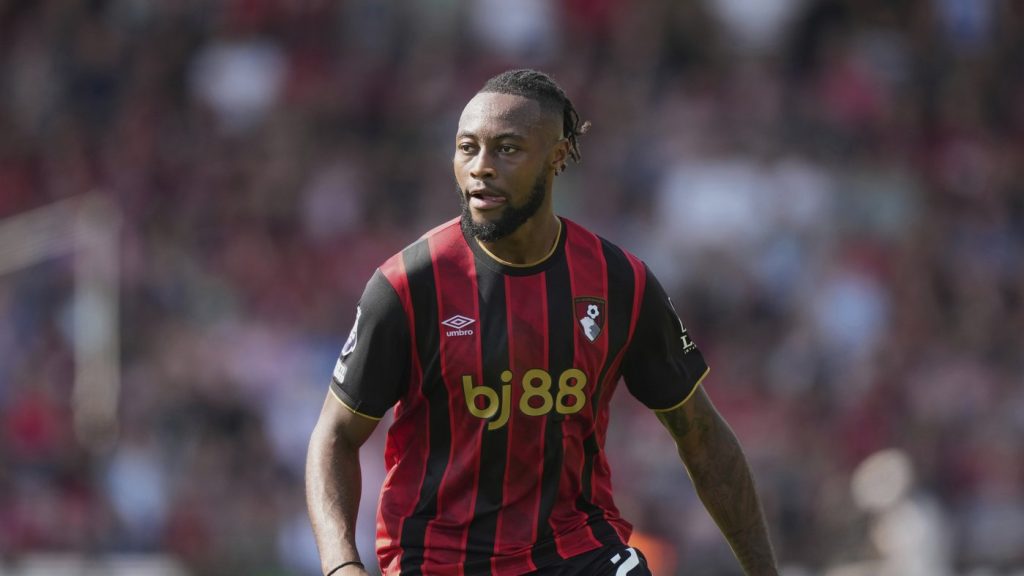The Premier League season commenced with a troubling incident, as Bournemouth forward Antoine Semenyo reported being racially abused by a spectator less than half an hour into the match against Liverpool. This incident occurred alongside a broader pattern of racism in European soccer, as a German Cup match was halted due to Schalke midfielder Christopher Antwi-Adjei's report of racial abuse during a throw-in. In Italy, Juventus condemned racial abuse aimed at U.S. player Weston McKennie while he was warming down post-game. Meanwhile, in Spain, police arrested a spectator for allegedly making monkey noises at Real Madrid star Kylian Mbappé during a match on August 24.
The surge in racially motivated abuse directed at Black players across Europe is alarming, as highlighted by anti-discrimination campaigners. Piara Powar, executive director of the Fare network, reported a significant increase in incidents compared to the previous season, noting, "I think it’s more than double what we had last season at the same time." Powar mentioned that social media exacerbates these issues, with incidents like the abuse directed at England player Jess Carter at the Women’s European Championship earlier this summer illustrating a wider problem.
Frustrated by the ongoing abuse, some Black players, including Semenyo, have called for stricter penalties against offenders both from the justice system and within soccer institutions. Semenyo expressed his confusion and frustration, stating, "In this day and age, we’re still, us players, getting racially abused and it just doesn’t make sense. We just want to know why it keeps happening." The individual arrested for the abuse against Semenyo has been released on bail but is prohibited from coming within 1 mile of a soccer stadium in Britain during the police investigation.
Soccer, with its deep-rooted tribal culture, has historically served as a stage for societal issues such as racism. During the 1970s and 1980s, English soccer experienced a particularly challenging era, with Black players facing routine monkey chants and slurs. Fast forward to today, while racial abuse is now common on social media, it continues in stadiums as well. A recent example involved Vinícius Júnior of Real Madrid confronting a supporter who had called him a monkey, highlighting that racial abuse remains prevalent. Soccer's governing bodies have struggled to eradicate this issue, despite implementing various measures such as longer bans for players, heavier fines for clubs, and point deductions for teams involved in racist incidents.
Organizations like FIFA have attempted to address racism in football through initiatives such as creating a task force in 2013, which was controversially disbanded three years later. Recently, FIFA announced a new initiative comprising a 16-member group of former players, including renowned names like George Weah and Didier Drogba, tasked with advising on anti-racism initiatives. FIFA President Gianni Infantino expressed the hope that this panel would help create meaningful changes in football culture and ensure that anti-racism measures are actively implemented both on and off the pitch.
Despite increased awareness and media coverage of racist incidents in soccer, Powar noted a worrying rise in reported incidents early in the season. His organization has submitted reports on 18 alleged discriminatory incidents to UEFA and FIFA and identified 90 clear incidents of discrimination in 67 matches, with nearly half of them being racially motivated. Powar linked this increase to a heightened focus on migration issues in European politics, suggesting that far-right agendas within fan groups could be influencing the rise in racist behavior.
Experts like Jacco van Sterkenburg have cautioned against attributing soccer's racism solely to broader political trends, underlining that racism in football is also driven by internal factors, including the lack of diversity in boardrooms and coaching staff. The challenges faced by FIFA and UEFA include maintaining a balance between being competition organizers and regulatory bodies. Powar mentioned the situation in Mexico, where the national federation faces regular fines for fan behavior yet remains in the World Cup qualifying process despite repeated offenses.
Former Manchester United defender Gary Neville has called for more substantial consequences for offenders, highlighting a need for deeper discussions beyond education and awareness. As the debate over racism in soccer continues, Neville and others are advocating for a shift in how incidents are addressed, suggesting that better enforcement of penalties for clubs and individual offenders could lead to a more effective response to this ongoing issue.










